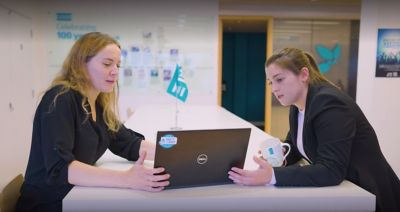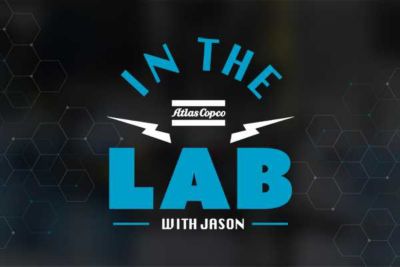Rivet production gets greener
The Atlas Copco Industrial Assembly Solutions' Henrob product company in Deeside, U.K. recently commissioned a Reverse Osmosis system to treat waste water at its plating plant. After treatment, the water can be returned to the process for re-use. About 75% of the waste water will be recycled in this way and the volume of water used and discharged will be reduced by up to 7 million liters per year
Reverse Osmosis (RO) is a system where water with contaminants is pumped at high pressure through a vessel containing semi-permeable membranes. Only water can diffuse through these membranes and not the contaminants. The Deeside plant uses and discharges on average 177 m3 per week – almost 9 million liters a year. Until recently the waste water was sent to the local sewage treatment plant and treated there before being discharged to rivers. Replacing mains water Now, instead of sending all this water down the drain, it is sent to the RO plant for treatment. The treated water can then be returned to the plating plant and used instead of mains water. So far the RO unit has proved to be capable of recovering approximately 75% of the water sent to it. In addition to the cost savings, this is a major improvement in terms of reducing the plant's environmental impact. Deeside is becoming a greener manufacturing plant. Being able to treat and re-use the water will make the rivet plating process more self-sustaining and aligns well with the overall aim of reducing all types of waste from the process to an absolute minimum. Similar system for the U.S. There are plans to replicate the system at the U.S. facility in New Hudson. Together the two plants discharge the equivalent of 25 million liters of water per year. Recovering 75% of the the water for re-use would provide major environmental benefits.





